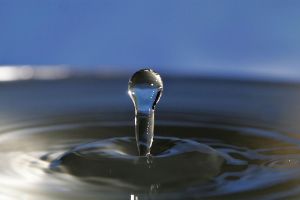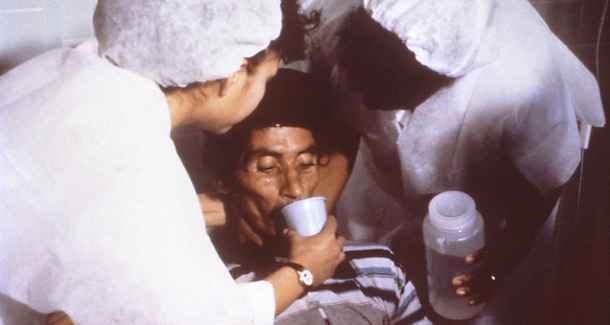
Water (Photo credit: Wikipedia)
Water is the fundamental building block of all known life forms.
There are organisms that can survive indefinitely without oxygen, in boiling temperatures, in near absolute zero freezing environments, even in the radioactive vacuum of space - but absolutely nothing can live without water.
With our bodies being 65% water, humans are especially vulnerable to dehydration. We constantly lose water through sweat, urine, feces, and even in our breath.
So just how long can humans survive without water? That depends on a several factors:
- What’s the temperature?
- How hydrated were you to begin with?
- Are you resting or working?
- Are you exposed to the sun?
- Do you have food? What kind of food?
- How much fat does your body have?
- Do you have a high metabolism?
In ideal conditions at room temperature (70 farenheit/21 degrees celsius) with no food, a person could potentially last as long as 12 days. This would be on the extreme end of human survival though; a more likely estimate would be approximately 3-5 days without water.
If the temperature was cranked up to say, 120 F (48 C), you would survive 2.5 days at the upper limit - and that’s only if you were resting in the shade. In hot conditions with the sun beating down on you, dehydration can set in within an hour - that’s why its so dangerous to leave a baby locked in a car during the summer. A baby locked in a hot car could potentially die of dehydration within several hours.
In major heat, an adult human can lose up to 1.5 liters of water per hour through sweat - potentially more if he/she is working hard. When it comes to dehydration in high heat, there’s a good chance you would die of heat stroke before you die of dehydration, since drinking water is essential for keeping your core body cool in exceptional heat.
What Happens To Your Body If You Go Without Water?

Nurses Rehydrate a Dehydrated Patient (Photo credit: Wikipedia)
The first thing you’d experience is mild dehydration. We’ve all experienced mild dehydration before, though if you’re living somewhere with an internet connection, you’ve likely never experienced the symptoms of moderate or severe dehydration.
Mild dehydration
- Decreased saliva
- Lower frequency of urine
- Less urine
- Urine color will darken
- Urine develops a stronger odor
Moderate dehydration
- Dry mouth
- Even less urine
- Extremely dry eyes
- Rapid heartbeat
Severe dehydration
- No urine
- Vomiting and diarrhea (which further accelerates dehydration)
- Lethargy
- Skin becomes blue-gray and cold to the touch
The last stage of dehydration is shock. At this stage, the skin feels cool as the blood pressure drops, and the skin will take on a bluish-grayish tinge. Death follows soon after.